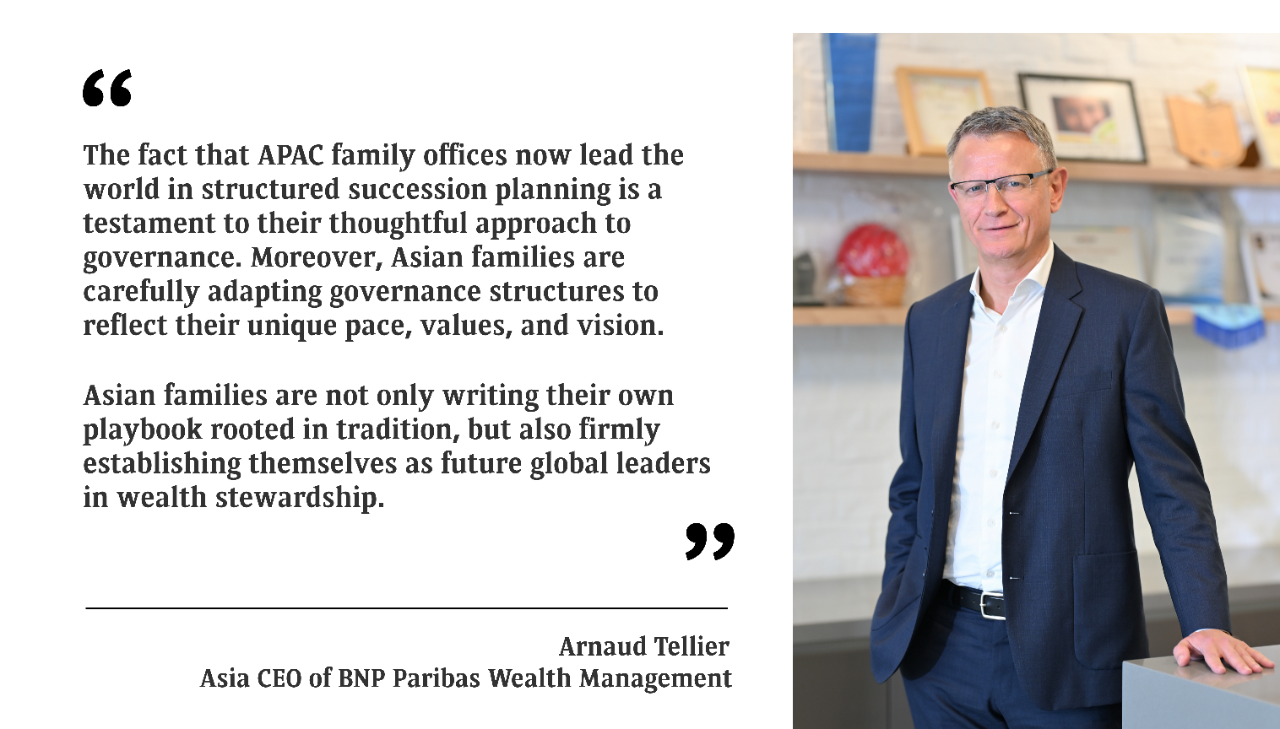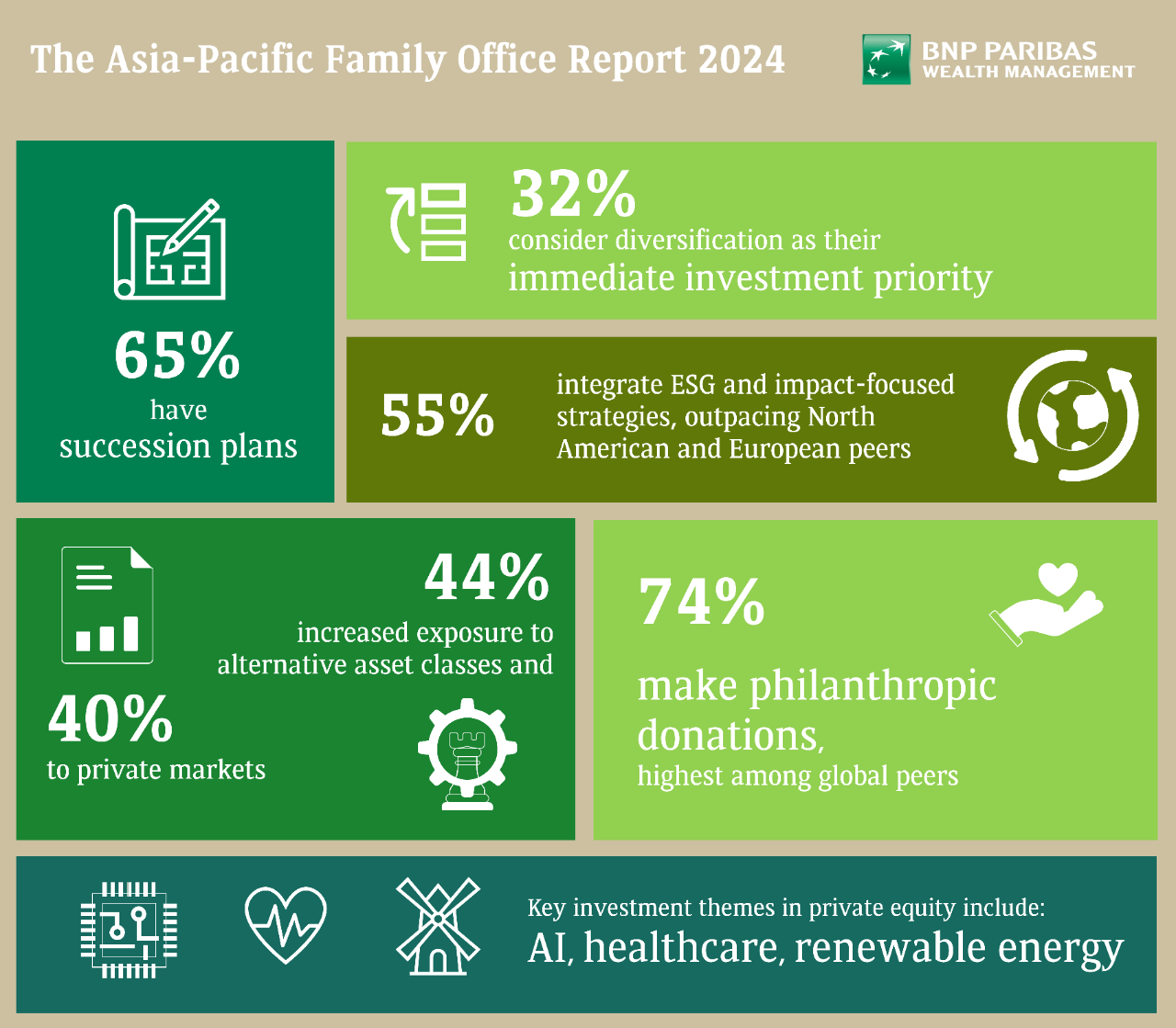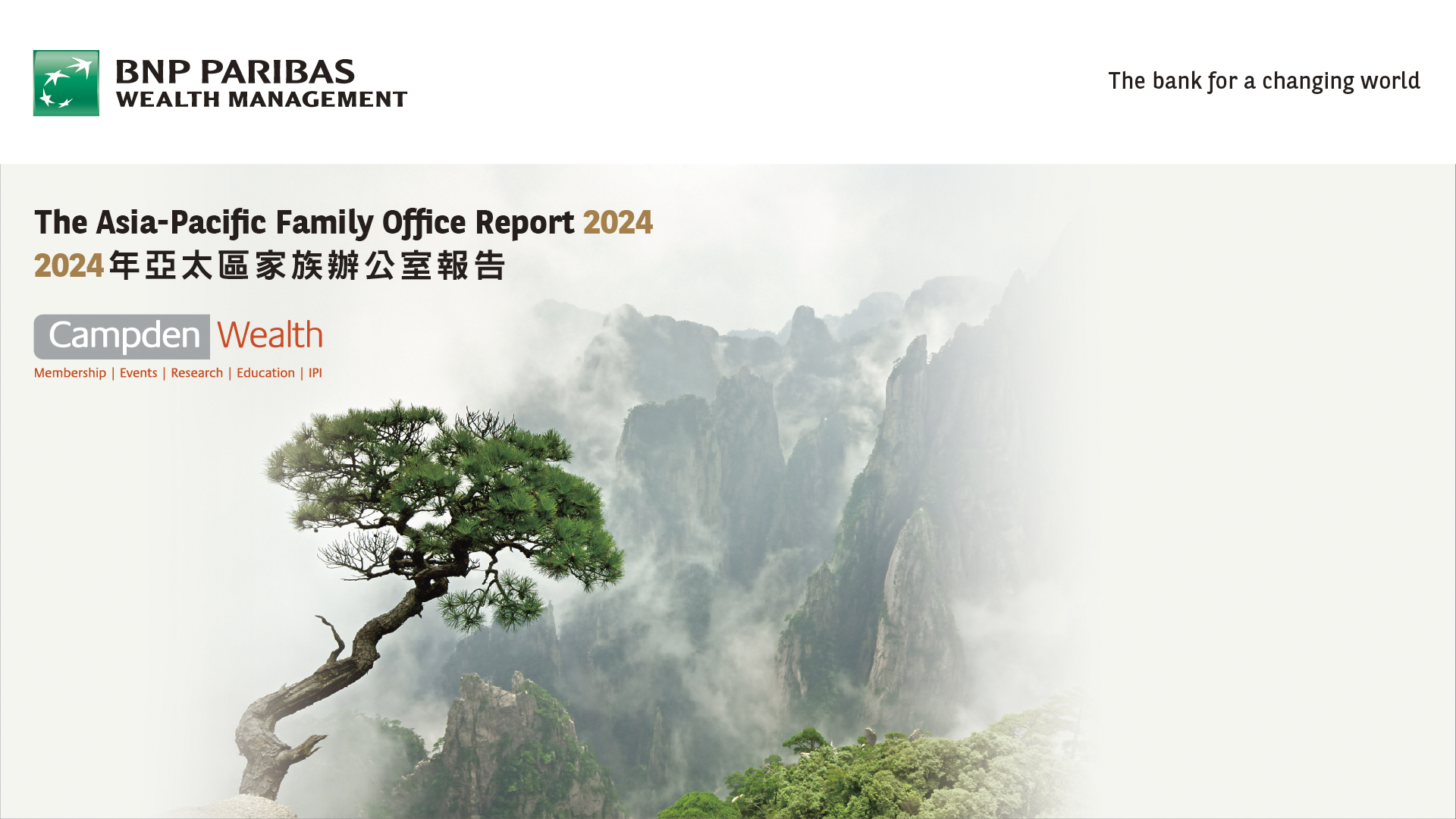The newly published 2024 Asia-Pacific Family Office Report by BNP Paribas Wealth Management and Campden Wealth reveals that 65% of APAC family offices have succession plans, significantly ahead of their global counterparts. This shows that APAC family offices are undergoing a transformation shift in leading the world in succession planning and challenging traditional perceptions of informal governance structures in the region.
The study, which surveyed 360 family offices worldwide — including 76 from APAC — reveals that 65% of APAC family offices have succession plans, significantly ahead of their global counterparts.
A focus on family harmony, strategic tech investments and responsible investing reveals a new era of stewardship in the region.
Scroll down for the full report

Key findings at a glance
- APAC family offices prioritise robust frameworks centered on family communication and elder care, rather than focusing primarily on investment risk management—a notable difference from European and North American family offices.
- There is a shift in investment priorities among APAC family offices, driven primarily by the need for portfolio diversification amidst increasingly correlated public markets. Approximately one-third (32%) of family offices cite diversification as their immediate investment priority,
- To achieve this diversification, APAC family offices actively integrate alternative asset classes—including hedge funds, commodities, and gold (44%)—alongside private market investments (40%).
- Despite smaller private market allocations (18%) compared to global peers (27%), APAC family offices favor direct investments, which constitute nearly half (45%) of these holdings.
- APAC family offices strongly emphasise responsible investing, with 55% currently integrating ESG and impact-focused strategies, outpacing their North American and European peers. This dedication also translates into philanthropic endeavors, with three-quarters of Asia-Pacific family offices make philanthropic donations, highest among its global peers (Global average 67%).
- The alignment between responsible investing and Philanthropy illustrates a compelling shift toward purpose-driven capital.


